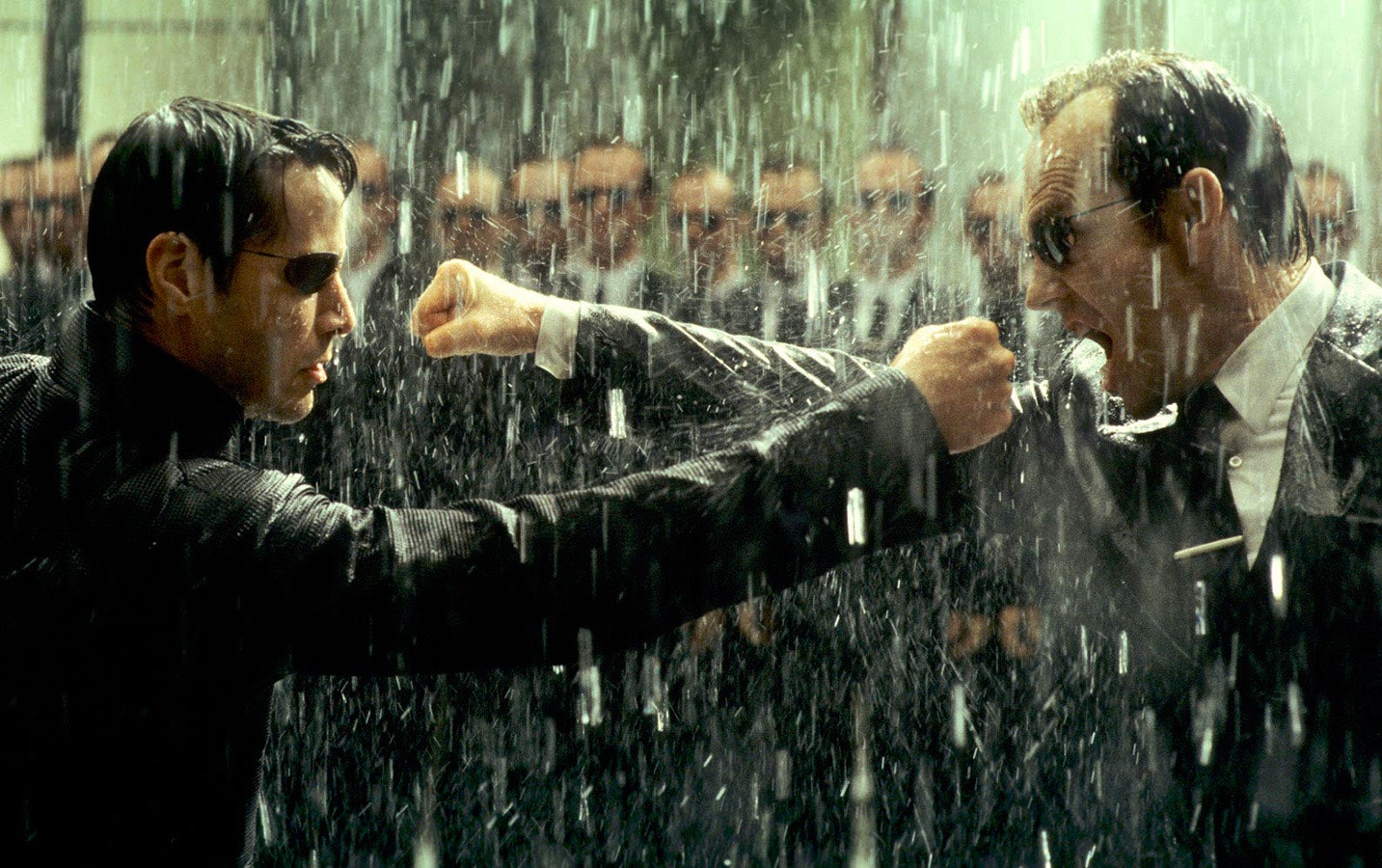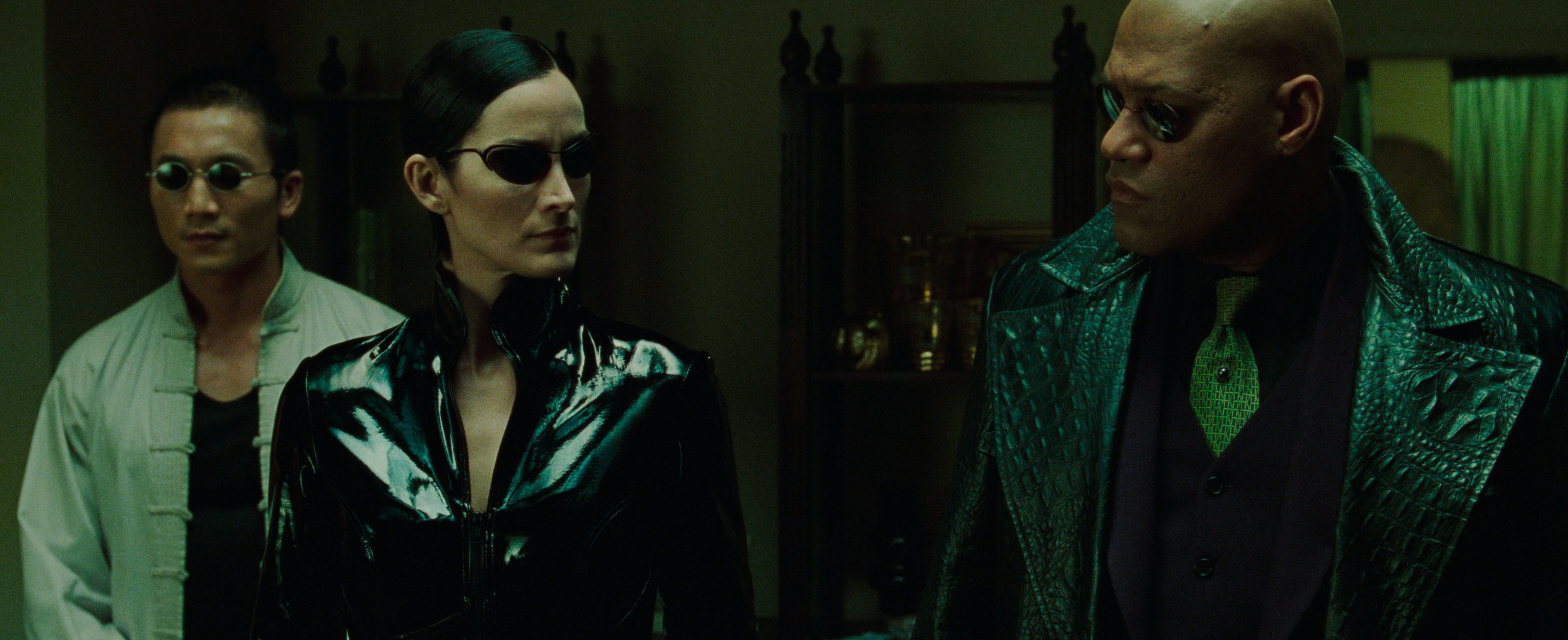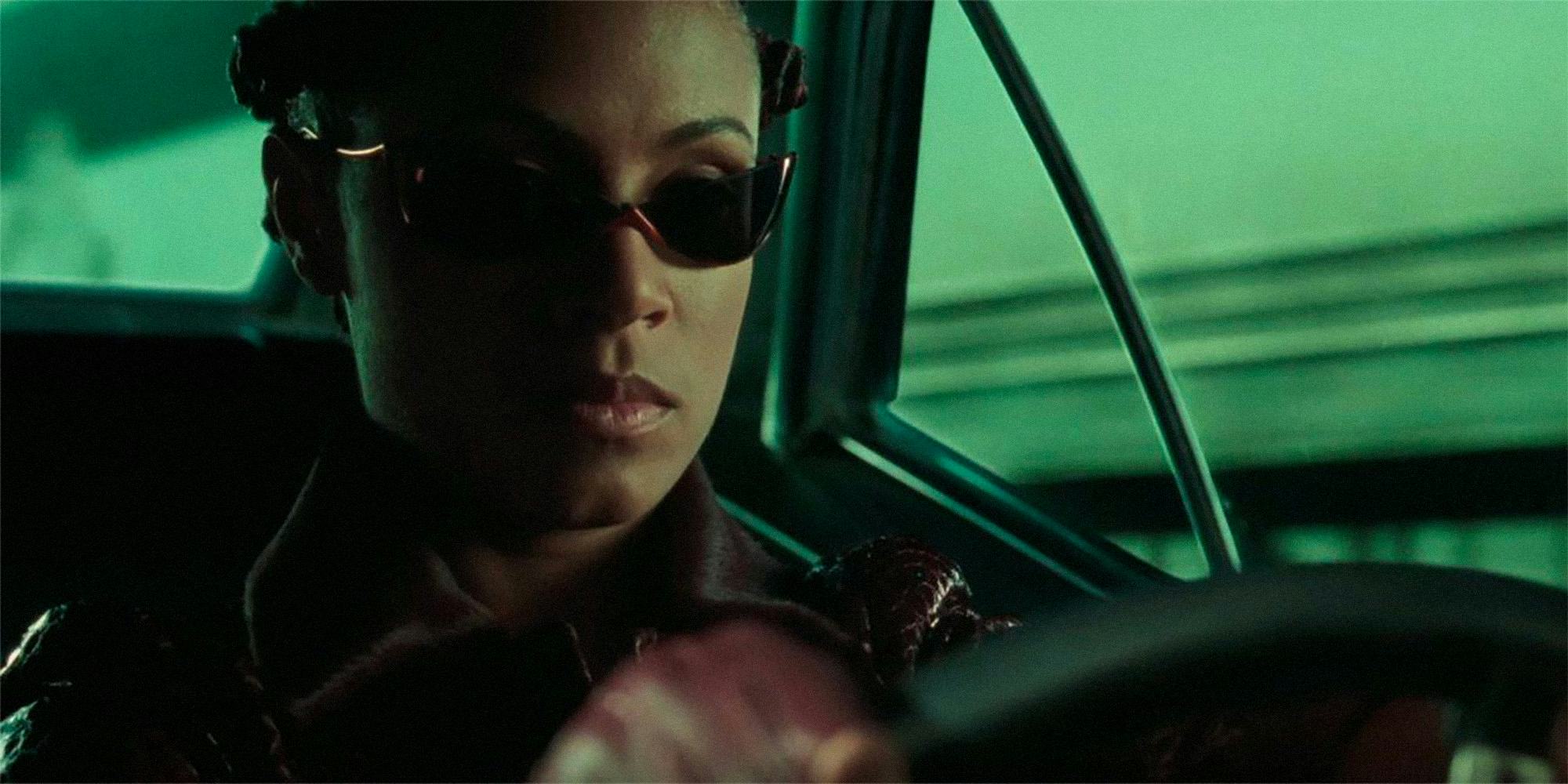
The Matrix was a Trojan Horse. What began with Y2K futurism, kung-fu, and “bullet time” later evolved into a brooding treatise on free will. The sequel to the 1999 phenomenon, The Matrix Reloaded, certainly delivered on some high-octane, visually stunning action — but it also worked hard to deconstruct our notion of the Chosen One and the traditional hero’s journey. The Matrix Revolutions followed Reloaded by just a few short months, but by then, the saga had swerved into unrecognizable territory. It didn’t subvert audience expectations so much as it crushed them, trading slick hand-to-hand battles in for tedious, apocalyptic action and a whole lot of navel-gazing.
That’s not to say that Revolutions completely lost the plot. Directors Lana and Lily Wachowski had a clear vision for the Matrix saga; it’s just not one that anyone saw coming. Neo (Keanu Reeves) has completed his transition to Messiah figure in the 2003 film, but there’s a catch. He is still technically The One — but he’s not the first, and he won’t be the last. Even if he and the people of Zion manage to defeat the nefarious machines, peace will be fleeting. The machines will rise again, and a new One will eventually rise. The cycle will continue. Neo is not special — nor, would it seem, is he unique.
Is this a bit of a bummer? Kind of, but it’s still a welcome one; a defiant challenge to an audience (and society) that craves clean, binary battles between good and evil above all. But the Matrix saga was tempering our expectations from the very beginning. It was never a one-man show. Neo is only the One so long as people believe in him. His circle of believers gets bigger as the story continues; by the time he’s ready for his final showdown against Agent Smith (Hugo Weaving) and the machines, Neo’s got humans and programs alike on his side. They are instrumental to his eventual victory, and also to the message hidden in the Wachowski’s magnum opus: the most powerful heroes are those that you least expect.

The nice thing about the Matrix saga is its sheer reluctance to adhere to just one interpretation. Some look at Neo’s journey and see a trans allegory hiding in plain sight; others see a steampunk Wizard of Oz, or a remix of the Messiah myth. The latter stuck out the most in my first trip down the rabbit hole. It’s hard not to see a Christ figure in Neo, or dogged discipleship in Morpheus (Lawrence Fishburne) and Trinity (Carrie Anne Moss).
It’s equally difficult to resist bemoaning the clear allusions to a white savior narrative. As an actor of mixed-Chinese-Hawaiian heritage, Reeves is not your conventional white, male action star — that’s part of his offbeat appeal — but he is still the one chosen to lead an army of oppressed, a lot of them people of color, to freedom from the machines. He is the one that eventually brokers peace and defeats the most vile program of all.
But this is why I love the Wachowskis. No one person bears the sole burden of savior. Everyone in Zion has equal part to play in their last stand, and nowhere is that more apparent than in Revolutions. With Neo trapped in limbo at the top of the film, it’s Niobe (Jada Pinkett Smith) that steps up as a key leader in Zion’s last stand. She’s a driven, no-nonsense oasis in a desert of testosterone-fueled drama, even as she’s roped into a love triangle with ex Morpheus and current flame Commander Lock (Harry Lennix). She also becomes one of Neo’s fiercest allies: it’s her ship, the Logos, that Neo and Trinity will eventually take to Machine City.

Niobe’s change of heart surprises Morpheus, as Niobe never truly believed in the One. As she tells him later, she still doesn’t. But she believes in Neo — and that makes all the difference in their battle against the machines.
It turns out that Neo actually is different: not because he can fly or see code with the naked eye, but because he refuses to leave anyone behind. He’s brought into this world, and taught about its injustices, by society’s most oppressed. It’s a woman and a Black man that radicalize Neo in the fight against the machines. Black women are his fiercest champions. And in the end, Neo sacrifices himself so that they can live on in freedom. (Trinity, unfortunately, is denied her happily ever after, but The Matrix Resurrections righted this wrong a cool 18 years later.) That does make him a martyr in one sense, but he’s also the best example of an ally we’ve ever gotten in a story of this scale.
None of this would have worked if the Wachowskis weren’t so committed to featuring diversity on the most subliminal level. The Matrix saga was revolutionary on the premise of its cast alone in the ‘00s, and it continues to inform aspects of the franchise’s best hidden messages. The Matrix was a Trojan Horse, both in its approach to modern myth and its use of unorthodox heroes in a traditionally-white, traditionally-male genre. Revolutions is still a sore spot among fans, but it does have its merits — and its deconstruction of the white savior narrative is just one of the things that keeps it relevant today.







